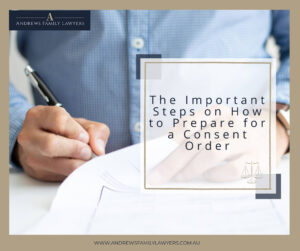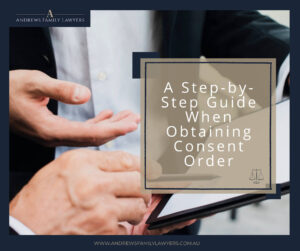What to Do When Your Ex Delays Property Settlement in Newstead, Brisbane Family Law
Have you ever needed to divide property when separating or divorcing? You likely want to get it over with and move on. However, it’s common for one party to delaying property settlement. Married couples and people in a de facto relationship are all susceptible to difficulties during the settlement process.
There’s a common misconception that you cannot finalise your property settlement until after your divorce. There are other reasons such as not being ready to move on or thinking there might be the advantage of a better result by waiting.
There are many more advantages to finalising your property settlement sooner rather than later.
Here’s everything you need to know when dealing with an ex-partner who’s delaying property settlement.

Key Takeaways
- Property settlement delays often stem from emotional readiness, legal misunderstandings, or one partner seeking a better financial outcome.
- Both parties are legally obligated to disclose all financial information to each other for a fair settlement.
- Some ex-partners may delay settlement by withholding information, avoiding mediation, missing payments, or cutting off contact.
- Delaying the settlement can make the financial situation more complicated.
- Acting quickly on property settlement protects your assets and avoids entanglement with an ex-partner’s future debts.
- A family law attorney and mediation can help speed up the process and ensure a fair division of assets.
Quick tips
| Problem | Solution |
|---|---|
| You believe your spouse is hiding assets. | Work with your lawyer and other professionals, such as a forensic accountant, to discover hidden assets. |
| There's a concern that assets will be sold before the settlement. | Your lawyer can seek an urgent injunction that prevents a party from draining joint accounts and selling assets. |
| Your ex-spouse refuses your attempts to communicate. | Proceed with a property order as a sole applicant, issuing subpoenas to disclose financial information. |
| An ex-partner is making cohabitation unsafe while delaying a property settlement. | Apply for a sole occupancy order from the Court. This requires one party to move out of the marital home. |
| You have faced significant costs in trying to resolve a delayed settlement. | The Court can make cost orders, requiring your former partner to cover your legal expenses. |
What's the point of a wife or ex-husband delaying property settlement?
An ex-partner may wish to delay a property settlement for a number of reasons. Delays can occur due to misunderstanding the implications of not finalising a settlement.

You can't come to an agreement
The most common reason is because you can’t come to an agreement. Your ex-spouse may feel they are entitled to more than you are offering them. This can be a particular problem during binding financial agreement negotiations. You don’t appeal to the Family Court to mediate these agreements. Both parties negotiate directly with the assistance of independent legal advice from an expert Brisbane family lawyer. As a consequence, one party may assert greater leverage. While there’s a risk of undue influence, this will invalidate any agreement.
Emotional conflicts with the other party
An ex-partner may also be feeling emotional about the separation and think: “I can’t accept this is over”. This can lead to them being in denial about the property settlement. This emotional conflict can manifest in many ways.
A former partner can insist on trying to rekindle the relationship. This can lead to a great deal of emotional hardship. You may also be subjected to angry outbursts or manipulative tactics to undermine your case.
You're on good terms, so you don't need a court-ordered property settlement
You may think you don’t need a property settlement because you’re on good terms. You believe you can transfer assets from one person’s name to another and move on with your lives.
If you transfer property between parties, you will pay stamp duty. This is known as transfer duty in Queensland. However, the stamp duty cost is waived if you do this in a legally binding property settlement. Calculating the cost of stamp duty compared to the settlement fees may make it clear that a settlement is more cost-effective.
Secondly, if you choose to agree verbally, this is not legally binding. Either of you can decide to commence the process of a property settlement at any time, leaving you at risk.
Your ex believes it will financially benefit them to delay
Your ex-partner may believe that delaying the settlement will benefit them financially in some way.
Control of assets
They may wish to stay in control of certain assets, such as the family home, where they may be living rent-free until the settlement is completed. Even if the home isn’t in their name, you can’t force them to move out after separating.
Post-separation debt
Secondly, if you have debts when seeking a formal property settlement, these are your responsibility. Your ex-partner may incur debts post-separation. It’s a common belief that only assets and liabilities existing before the separation are eligible for division. However, this isn’t the case. While you may be separated, you’re still technically married. This means that any debts that arise after separation can affect you. You could end up responsible for some of these debts when you eventually reach a final settlement.
Expected inheritances
Inheritances can be a tricky issue in property settlements. One party may expect that their ex-partner will receive an inheritance in the near future. A mere expectation of an inheritance is generally not enough to warrant classifying it as property as it hasn’t yet formed part of the marital pool. The party may then decide to delay the settlement to allow the inheritance to come in. Under the Family Law Act, this can impact how the Court weighs financial and non-financial contributions, as well as the future needs of the parties.

How do ex-spouses delay property settlements?
For a property settlement to take place, both parties involved are required to disclose all relevant financial interests. A fair settlement offer isn’t possible if all of the information is not made available.
This is called a duty of full and frank disclosure and begins before the case starts and continues until the settlement has concluded. Full disclosure includes total direct and indirect financial circumstances. These include all sources of income, interest, assets, and liabilities such as loans and credit cards.
It is especially important to understand that new information or documents could come to light during the process. Disclosure documents must be updated to include this to the courts and all parties involved.
Not complying or not engaging
An ex-partner can refuse to consider any reasonable settlement offers or attend mediation sessions to delay settlement. They may do this if they believe it will result in a better offer. One particularly insidious way non-compliance can arise is by attempting to hide or manipulate assets.
Hiding assets or financial information
While financial disclosure is mandatory, this requirement isn’t always met. To disrupt the settlement and gain an upper hand, a person can manipulate the asset pool. There are many well-known strategies to do this. Here are some common tactics lawyers face.
- Transferring assets. Property such as cash and other assets can be gifted to friends, family, and other close associates to remove them from consideration. The party can then retrieve them after the settlement.
- Undervaluation. Property pools may contain rare or unique items including prized artwork and collectible items. Valuing these items can be difficult and requires specialised knowledge. A party may provide an inaccurate valuation that under-reports the true value.
- Delaying income. A party may be expecting a bonus payment through their employment that they choose to put off. As with inheritances, the expectation of a bonus is not usually considered property.
- Cryptocurrencies. Digital currencies are a relatively recent phenomenon. One of their primary benefits is a lack of central regulation. When they’re operating beyond the purview of governments, they are an excellent way to render wealth anonymous.
Missing mortgage repayments
This is a common tactic that can delay settlement when the family home is an asset that needs to be sold or divided in the settlement. You may buy out your ex-partner’s share of the home or the other way around. Falling behind on mortgage payments can cause issues in qualifying for refinancing. This is because most banks require you to prove six months’ worth of perfect mortgage payments.
Ignoring all attempts at contact
Finally, an ex-partner can simply ignore all attempts at contact to delay settlement. This is arguably the most common tactic when the party isn’t emotionally ready to move on.

What can I do when my ex-husband or wife is delaying the property settlement?
The first thing you should do is speak to an experienced family and divorce lawyer. They can assist you in the steps to take to complete your property settlement as quickly and smoothly as possible.
The first step toward reaching an agreement would be to write to your ex-partner to ask them for full and prompt disclosure in a specific timeframe. If you have evidence that your ex is hiding some assets or information, a Newstead family lawyer can work with a forensic accountant to determine any manipulation. A lawyer can then issue a subpoena to access required financial information. You can also request mediation to discuss the settlement with a mediator.
If none of the above works and all attempts to negotiate fail due to your ex, the Court can intervene through interim orders.
Sole occupancy order
The Court can grant an injunction for the use or occupancy of the matrimonial home. This injunction prevents the other party from entering or remaining at the residence. The Court will only grant this order under specific circumstances, including:
- There is a threat of family violence.
- Children to the marriage are negatively impacted by co-parents residing together.
- The residence has been renovated to accommodate a disability.
Urgent injunction
This injunction seeks to preserve a marital asset pool pending a final property order. An urgent injunction prevents an ex-spouse from disposing of financial resources. It also stops them freezing accounts in an attempt to stop you using money in a bank account or accessing a pay-out from an insurance policy or superannuation interest.
Spousal maintenance
You can apply for spousal maintenance, which may be paid to you periodically. The amount you’re eligible for depends on your financial means and the requirements of your standard of living.
Asset manipulation sanctions
The Court can tackle asset manipulations by imposing financial penalties and other measures.
- Redistribution. Once the hidden assets are found, the Court may redistribute the property pool to benefit the aggrieved party.
- Contempt of court. The Court may hold a party in contempt if they’re found to have hidden assets. The party may face fines or even imprisonment. This is a more extreme measure.
- Legal costs. The party who is found to have hidden assets may be required to cover the legal fees of their former spouse.

How can I put off my own property settlement?
If you believe it may benefit you to delay your property settlement, you can avoid communication with your ex-partner, refuse to disclose information, or not engage with the attempts to settle for a short period of time.
You should avoid missing mortgage repayments at all costs, as this will impact your credit rating and ability to borrow in the future.
You also need to be aware of the time limits that apply and not cross them, or let the initiated court proceedings reach a property settlement order against you.
What are the advantages of delaying settlement?
As mentioned above, an ex-partner will most likely want to delay the property settlement if they believe it will give them an advantage. They may do this because they are aware that you are likely to receive a large sum of money in the near future. You may also be purchasing a property, or the family home is about to increase in value.
On the flip side, they may have large debts that they know will get larger. The longer they delay the property settlement, the more debt they may be able to divide with you.
Alternatively, they may want to delay for so long as to completely avoid a property settlement altogether to protect their assets.
What are the disadvantages of delaying settlement?
The longer you delay your property settlement, the more complicated it can become with your relationships, your assets, and moving on with your life. Not finalising your property settlement creates more opportunity for your ex-spouse’s accrued debts to be shared with you. Assets you take possession of after separation could also be shared with them.
Your assets are valued at the time of settlement, not separation
Assets to be divided include property, savings, debts and super. It’s essential to recognise that things like super and savings will likely grow over time. The longer you delay the settlement process, the larger these may be.
Similarly, you could purchase a property and receive an inheritance. Your business could grow its revenue post-separation but before finalising your property settlement. These higher valuations will be included in the asset pool. Your ex-partner may be entitled to a portion of anything included in the asset pool.
The same goes for debts or running assets down in value. If your ex-partner is not great with money, there is a risk that you may be required to take on a large portion of their debt. This could delay the settlement further while the increased debts are assessed.
They may also de-value certain assets. They can withdraw money from bank accounts, draw on the mortgage, take valuable items, or run up credit card debts.
Separating on good terms
Former spouses who’re on good terms should begin the property settlement process as soon as they can. The relationship is amicable now, but may not always be.
Relationships often sour if one party doesn’t like the other’s actions or enters a new relationship. It’s common for the unhappy party to demand more from the asset pool as payback, or feel like they deserve more.
Speak to an experienced family and divorce lawyer before conversing with your ex-partner about a property settlement. This helps you understand the process and what your entitlements and obligations are.
Inheritance in the event of death
It sounds morbid, but until you get divorced, your ex is still your spouse, and if you or they pass away, the other partner is left with either the inheritance or the debt, even if you have a will. Updating your will post-separation is essential.
However, until your divorce is finalised, your ex may be able to claim under family provision legislation as your spouse and still be entitled to an inheritance.
Updating your will and finalising your divorce and property settlement are also crucial for protecting the inheritance of your children or other family members who you wish to receive your assets in the event of your death.

Can you get in trouble for property settlement delays?
If you refuse to engage with your ex-spouse when they are attempting to complete a property settlement with you, as mentioned above, there are several steps they can take to reach an agreement. If all of their attempts fail, you may find yourself hit with a court order for a property settlement largely outside your control.
We highly recommend that you seek legal advice to understand your rights and responsibilities and how to come to an amicable agreement quickly.
Is There a Property Settlement Time Frame or Deadline?
Many people don’t realise that there is a property settlement time frame. The time limit depends on the relationship you were in.
If you were in a de facto relationship, you have two years from the date of separation to apply to the Court with any property orders.
If you were married, you have one year from the date your divorce is finalised to apply to the Court.
There is no time limit if you are separated but not yet divorced. You do not need to wait to finalise your divorce before starting your property settlement proceedings. They can and should be started as soon as possible.
If you haven’t agreed outside of these time frames, you should contact an experienced divorce lawyer to determine your options.
From our clients
Peter Andrews was so helpful resolving an odd property dispute with an ex partner. He listened without judgement and acted quickly to resolve the matter, I honestly could not have coped without him, an absolute godsend!! Thank you Peter!
- Lauren Myslinski
Dealing with a difficult spouse during a property matter is stressful and frustrating. Our experienced family lawyers work through property settlement delays quickly. We take every client’s case seriously and fight for a fair financial settlement.
Conclusion
Delaying property settlements can have serious consequences. One party may not be ready to move on or believe that waiting could benefit them financially. However, delays can backfire. Waiting to settle can result in higher legal costs and tangled financial ties. If your ex-partner is delaying, getting professional legal help protects your rights and avoids prolonged disputes.
Our team is waiting for your call. As one client put it: “Peter was professional, straight forward, insightful and best of all had a realistic plan to achieve an outcome“. We can help you avoid unnecessary delays. Let’s meet for a free consultation to resolve your family law matters.
Related Articles
Property Settlement FAQs
How long do I have to finalise property settlement after separation in Brisbane?
You can finalise a settlement any time after separation, but strict time limits apply if court orders are needed. For married couples, you must file within 12 months of your divorce becoming final. For de facto couples, you have 2 years from separation. Missing these deadlines usually requires the Court’s permission, which is not guaranteed. Many clients finalise earlier through Consent Orders or a Binding Financial Agreement to lock in outcomes and reduce risk.
Can I force a property settlement if my ex delays in Newstead?
Yes. If negotiations stall, you can move things forward by making a formal written offer, requesting mediation, and—if needed—starting an application in the Federal Circuit and Family Court of Australia. Once proceedings begin, the Court sets timetables, compels financial disclosure and valuations, and can make interim directions. Costs orders may follow if a party unreasonably delays or fails to cooperate.
What are my options if my ex ignores a Brisbane court order?
You can apply to enforce the order. The Court may issue enforcement warrants, appoint a Registrar or trustee to sign documents in place of your ex, order payment plans or garnishees, add interest, and award costs. Wilful non-compliance can amount to contempt. The key is to act promptly, keep records of breaches, and seek targeted enforcement orders that secure the outcome without further delay.
Does it matter who initiates the settlement process in QLD?
Legally, no, both parties have the same disclosure duties and the same framework applies. Practically, the person who initiates can set the pace, frame the issues, and bring the matter under Court timetables if needed. Making a reasonable early offer can also protect your position on costs. The best approach depends on your goals, urgency, and the level of cooperation from the other side.
What are the risks of delaying property settlement in Brisbane?
Delays can shrink or complicate the asset pool through market movements, new debts, or asset sales. Evidence goes stale, legal costs rise, and post-separation contributions or windfalls can create disputes. You also risk missing strict filing deadlines. Tax and super-splitting steps often need careful timing, and rules can change. Early advice helps you secure and formalise a fair outcome while options are widest.






